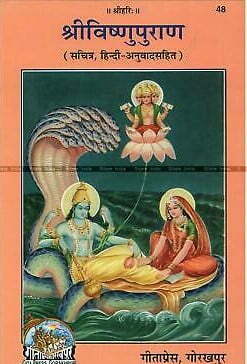Author: Veda Vyasa
About the author:
Veda Vyasa, also known as Krishna Dvaipayana Vyasa, is one of the most revered sages in Hindu tradition and is traditionally credited with composing and compiling a vast body of Vedic and epic literature. He is considered the author of the Mahabharata, the Puranas, and the Brahma Sutras, and is also recognized for his role in categorizing the Vedas. Vyasa is a central figure in Indian literary and spiritual history, and his works form the foundation of Hindu philosophy and religious practice.
Life and Background
Birth and Early Life:
- Veda Vyasa was born to sage Parashara and Satyavati. His birth is surrounded by miraculous and divine events, as Parashara was a great sage, and Satyavati was the daughter of a fisherman who later became a queen. Vyasa is also known as Krishna Dvaipayana because of his dark complexion and because he was born on an island (dvip) in the river Yamuna.
Names and Titles:
- Vyasa means “compiler” or “arranger,” reflecting his work in organizing the Vedas and other scriptures. He is also referred to as Badarayana, which is derived from his association with the Badari ashram.
Major Contributions
The Vedas:
- Vyasa is traditionally credited with categorizing the Vedas into four parts: Rigveda, Yajurveda, Samaveda, and Atharvaveda. He organized the Vedas to preserve the vast oral traditions and make them more accessible.
Mahabharata:
- The Mahabharata, one of the greatest epics of ancient India, is attributed to Vyasa. It is an extensive narrative that includes the story of the Kurukshetra War, the Bhagavad Gita, and numerous philosophical and devotional teachings. The Mahabharata is a cornerstone of Hindu literature and spirituality.
Puranas:
- Vyasa is also credited with composing the eighteen major Puranas, which are comprehensive texts covering mythology, cosmology, genealogy, and religious practices. These texts include the Bhagavata Purana, Vishnu Purana, Shiva Purana, and many others, each dedicated to different aspects of the divine and various deities.
Brahma Sutras:
- The Brahma Sutras, also known as the Vedanta Sutras, are attributed to Vyasa. These aphoristic texts systematize the teachings of the Upanishads and form the foundation of Vedanta philosophy.
Key Themes in Vyasa’s Works
Dharma:
- A central theme in Vyasa’s works is the concept of dharma, or righteous duty. The Mahabharata, in particular, explores the complexities of dharma through the actions and decisions of its characters, emphasizing the importance of moral and ethical living.
Bhakti:
- Devotion (bhakti) is a significant aspect of the Puranas, especially the Bhagavata Purana, which focuses on the life and teachings of Krishna. Vyasa’s works highlight the path of devotion as a means to attain spiritual liberation.
Philosophy and Metaphysics:
- The Brahma Sutras and the philosophical discourses in the Mahabharata and Puranas delve into profound metaphysical questions about the nature of reality, the self, and the ultimate principle (Brahman). These texts offer insights into the nature of existence and the path to spiritual enlightenment.
Influence and Legacy
Cultural Impact:
- Vyasa’s contributions have profoundly influenced Indian culture, religion, and philosophy. His works are integral to Hindu rituals, festivals, and daily practices. The Mahabharata and the Puranas have inspired countless works of art, literature, theater, and dance.
Spiritual Guidance:
- Vyasa’s texts continue to be a source of spiritual guidance and inspiration for millions of Hindus. The Bhagavad Gita, a part of the Mahabharata, is particularly revered for its teachings on duty, devotion, and the nature of reality.
Scholarly Significance:
- The works attributed to Vyasa are studied extensively by scholars of religion, philosophy, and literature. His systematic organization of the Vedas and his authorship of key philosophical texts have made him a central figure in the academic study of Hinduism.
Global Influence:
- Vyasa’s teachings and narratives have transcended cultural boundaries, influencing spiritual seekers and scholars worldwide. The Bhagavad Gita, in particular, has been translated into numerous languages and is studied globally for its universal philosophical and spiritual insights.
Conclusion
Veda Vyasa’s contributions to Hindu literature and philosophy are unparalleled. As the author of the Mahabharata, the Puranas, and the Brahma Sutras, and as the compiler of the Vedas, Vyasa has left an indelible mark on the spiritual and intellectual heritage of India. His works continue to inspire and guide people across the world, reflecting the timeless wisdom and profound insights of Hindu philosophy and spirituality.






